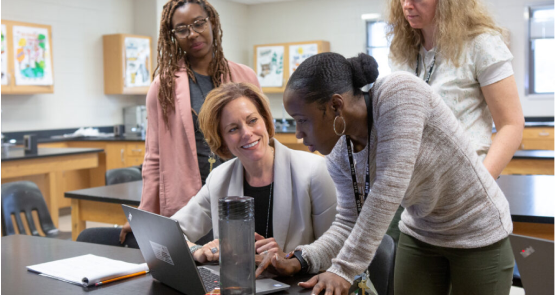A Scalable, Versatile Approach for Improving Critical Thinking Skills
By Helen Lee Bouygues
I’m seeing a lot being written today about the importance of critical thinking, and the absence of it in our society, especially as it pertains to political discourse and decision making. In a time when misinformation runs rampant online and across social media, the ability to fairly and objectively evaluate everything coming at us is paramount.
Recently, the Reboot Foundation collaborated with researchers from Indiana University to explore new ways to teach critical thinking skills. The research, which follows, found that educators and others can teach and hone essential critical thinking skills using a simple method that is easy to implement across diverse groups of students.
The implications are significant for teachers across all spectrums of education.
These exciting results show that critical thinking can be taught. They also offer a way of exploring critical thinking skills that does not involve overly complicated or lengthy ways of teaching them. Instead the research found that small amounts of critical thinking practice, employing things as basic as analogies and multiple choice quizzes, allow the fast and efficient teaching of critical thinking skills. And they’re techniques that any teacher can use.
Through an inductive learning approach, participants in this research project engaged in something they normally didn’t do: low-key–but consistent–critical thinking exercises. Rather than educators dedicating full days to critical thinking or developing full-blown critical thinking courses, we’ve shown that teachers can give simple, multiple choice practice problems that emphasize analogies throughout a semester and elevate critical thinking skills in their students. This research indicates that this approach could triple the effectiveness in cultivating critical thinking skills in participants.
“Critical thinking is the victim of having been totally overcomplicated,” the report’s co-author, Ben Motz, a professor at Indiana’s Department of Psychological & Brain Sciences, told me. “Teaching critical thinking, helping students become more savvy when confronted with information, doesn’t need to be so inflated.”
I concur wholeheartedly.
While critical thinking is often present in classrooms, it is too often an afterthought as educators focus on content knowledge that is specific to the particular discipline being studied. Or, teachers go in the other direction, and plan day-long lessons around building these skills. Prior to the pandemic, I spoke to an association of school superintendents in North Carolina, and I asked them how many of their schools taught critical thinking skills. Only a handful of hands went up. Today’s children need more.
The Reboot Foundation is committed to elevating critical thinking across the board. In an era of vast technological change, the foundation aims to promote richer, more reflective forms of thought in schools, homes, and businesses. As part of this effort Reboot is dedicated to supporting work by individuals and organizations, such as Indiana University, to better integrate critical thinking into our daily lives. Reboot has, for years, advocated that critical thinking skills can, and must, be taught. We’ve developed and published guides for teachers and parents so that they can bring critical thinking into their classrooms and homes. This new research is more evidence that this approach works.
And it comes at a critical juncture in our society.
In a time of fake news, misinformation from the highest levels of government and politics, a lack of critical thinking skills among the populace can have dire consequences. From COVID-19 deniers to the insurrection at the Capitol last January, citizens of all ages have fallen prey to online disinformation and irrational thought. The topic of critical thinking is one that is extremely useful now and yet it is one that we don’t practice very often in deliberate ways. The findings presented in this new research could help to change that.



